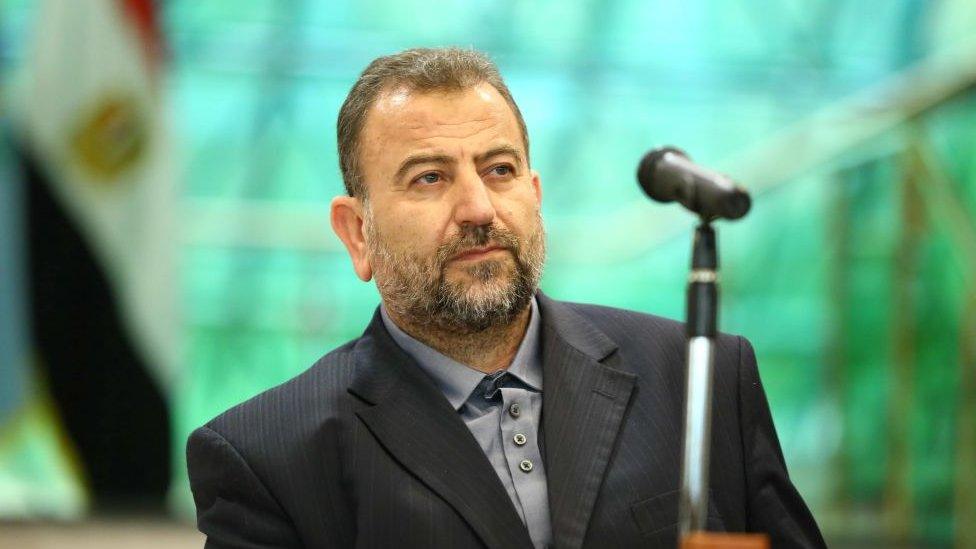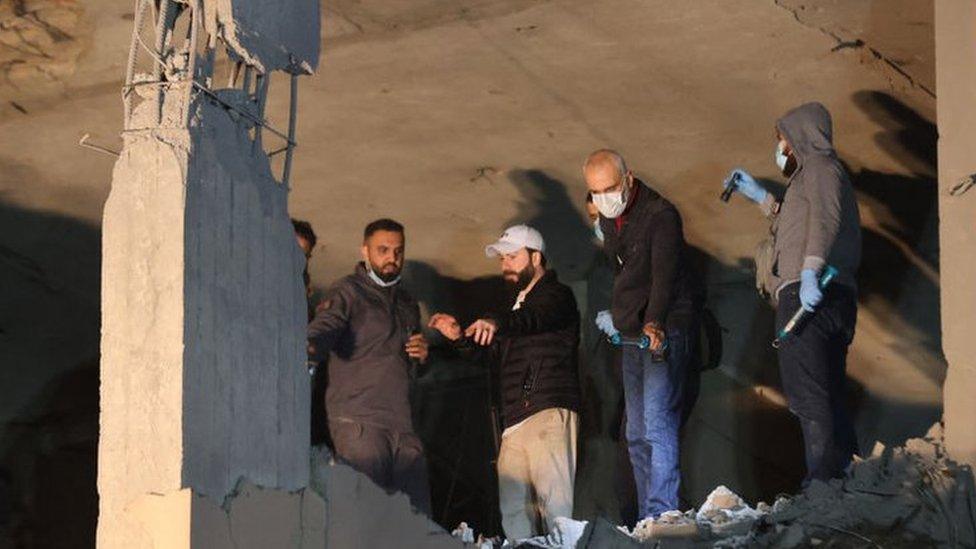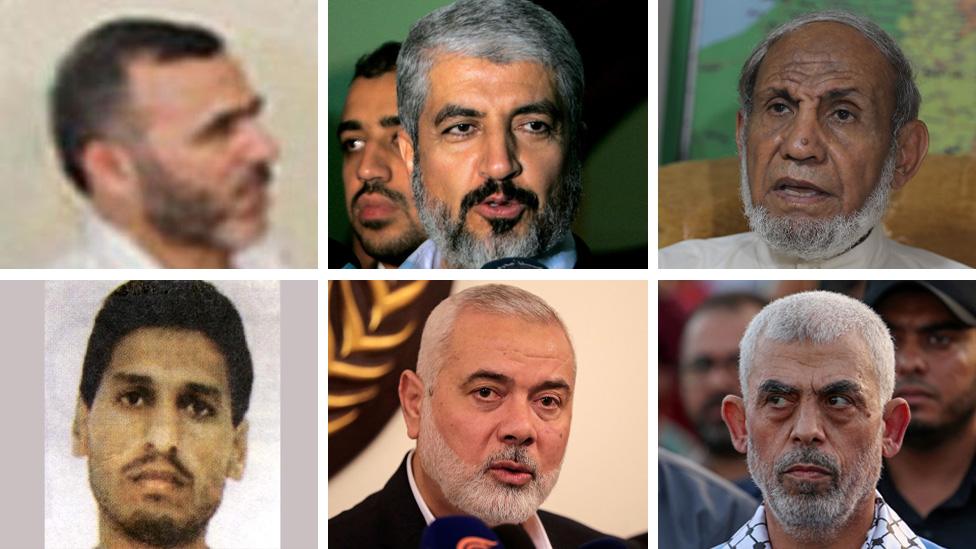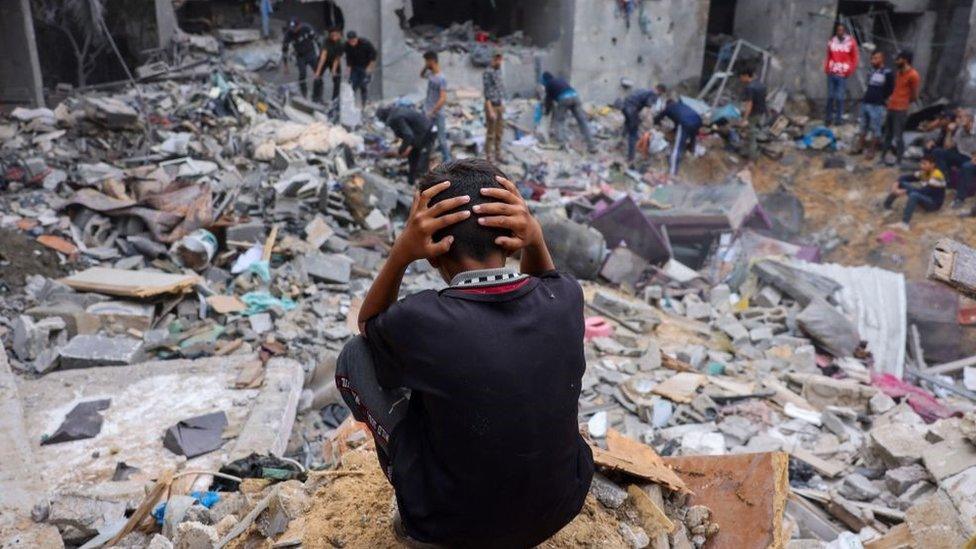Who was Hamas leader Saleh al-Arouri killed in Beirut?
- Published

Saleh al-Arouri was one of the most senior figures in the Hamas hierarchy - a leading man on both the political and military fronts.
The 57-year-old was the deputy head of Hamas's political bureau, and helped establish the group's military wing, the Izzedine al-Qassam Brigades.
He had remained deeply involved with the group's military affairs.
He was killed in an explosion in Beirut's southern suburb of Dahiyeh, an attack widely blamed on Israel.
Saleh al-Arouri joined Hamas in 1987, and helped establish the group's military presence in the occupied West Bank.
He was one of the closest connected Hamas officials to both Iran and Iran-backed Hezbollah in Lebanon.
He had served time in Israeli prisons. After his release he was a negotiator in a deal that saw more than 1,000 Palestinian prisoners being released in return for the freeing of Israeli soldier Gilad Shalit in 2011.
On 27 October this year the Israeli army had demolished his West Bank home in the town of Arura, near Ramallah. Arouri was living in Lebanon at the time of his death.
Lebanese media reported that he was killed in an Israeli drone attack on Hamas's office in the southern Beirut suburb of Dahiyeh, alongside six others who were reported to have also been members of Hamas.
This is not just about who was killed but where he was killed. A senior Hamas official killed in a Hezbollah stronghold in Lebanon is bound to make things even more precarious at a very volatile junction in the fighting.
Lebanon's caretaker Prime Minister Najib Mikati described the killing as a new Israeli war crime that aimed to drag Lebanon into a new phase of the conflict.
Hezbollah called the attack a "serious assault on Lebanon, its people, its security, [and] sovereignty" and warned that "this crime will never pass without response and punishment".
Izzat Al-Rishq, a member of the Hamas Political bureau called it a "cowardly assassination by the Zionist occupation".
Israel's military has not commented, telling the BBC it does not respond to reports in foreign media.
Israel is widely reported to commit targeted killings on foreign soil, but rarely comments on cross-border strikes. Mark Regev, adviser to Israeli Prime Minister Benjamin Netanyahu, did not say that Israel was responsible but called the attack a "surgical strike" against Hamas's leadership.
The country and the wider region now faces an anxious wait to see how Hezbollah reacts, and whether Israel's war in Gaza spills over into Lebanon.
Related topics
- Published3 January 2024

- Published21 January

- Published1 January 2024
